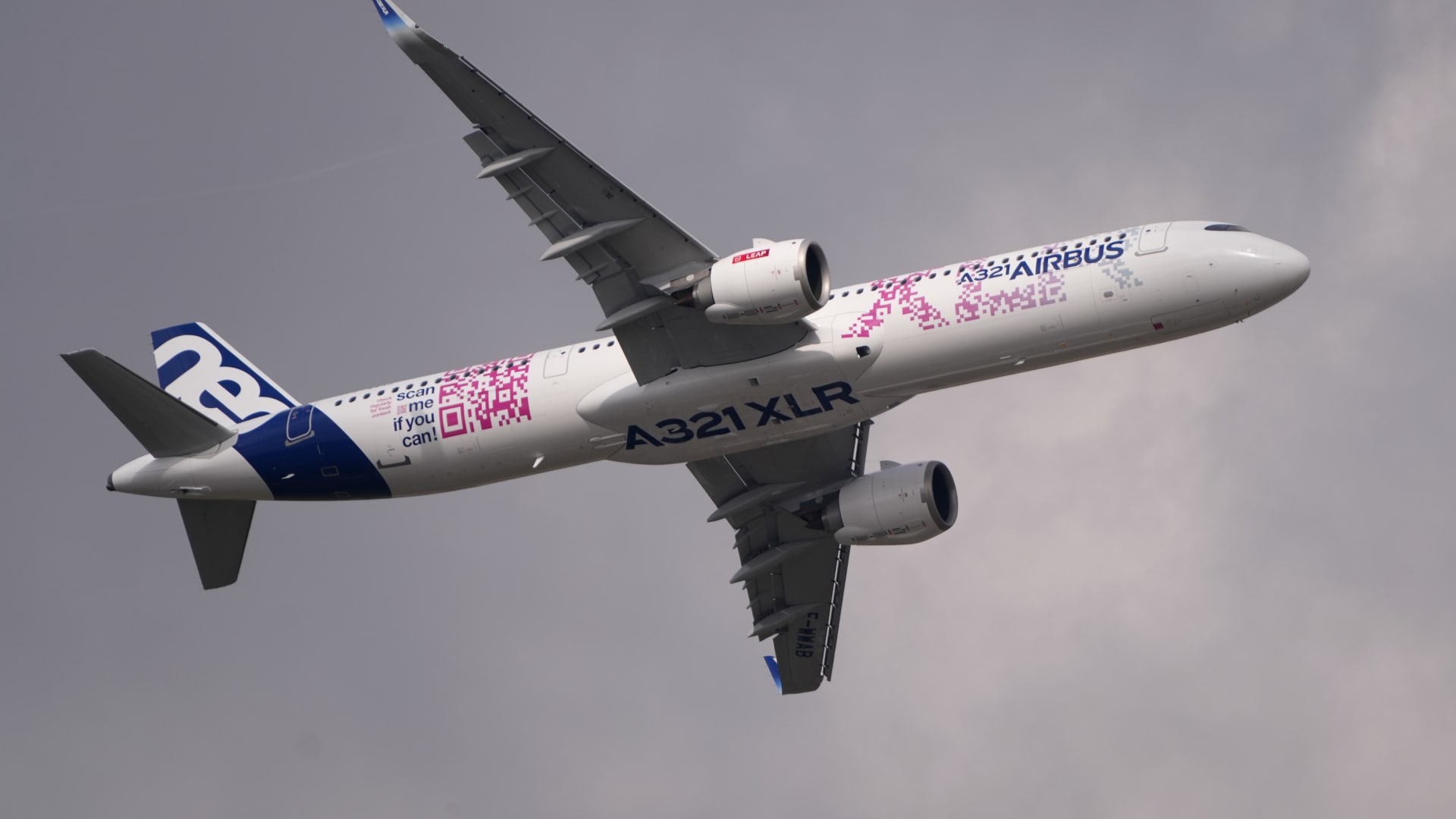An Airbus A321XLR Neo passenger aircraft performs a flying display at the Paris Air Show in Le Bourget, Paris, France, on Monday, June 19, 2023.Â
Nathan Laine | Bloomberg | Getty Images
Airbus said Wednesday that it has handed over its first extra-long-range narrow-body aircraft, the A321XLR, marking another step in an era of smaller and more fuel-efficient jets flying longer distances, and further expanding a delivery gap between Airbus and rival Boeing.
The first aircraft was delivered to Spanish airline Iberia, which plans to debut it between Madrid and Boston next month. American Airlines and United Airlines have also ordered the 321XLRs.
Airbus said the XLR can fly up to 11 hours nonstop, or 4,700 nautical miles, about 15% farther than the A321LR, a long-range version of the 321 aircraft, which is used for trans-Atlantic missions like JetBlue‘s service between New York and Amsterdam.
The plane maker has been working on getting the aircraft certified for five years. It burns about 30% less fuel than older aircraft, the manufacturer said.

The European company has more than 500 of the A321XLRs on order. It’s a tiny part of its backlog that stood at nearly 8,600 airplanes as of the end of June, but it is debuting a new plane as its rival Boeing is struggling.
In the wake of two fatal crashes of its 737 Max, Boeing put plans on the back burner for an all-new aircraft that would sit between 737s and wide-body jetliners, and potentially replace aging 757s, which are currently between the two.
The company is now planning to slim down, shed jobs and potentially get rid of businesses it doesn’t deem core to save cash and improve quality.
“Boeing’s an airplane company, and at the right time in the future, we need to develop a new airplane but we have a lot of work to do before then,” new CEO Kelly Ortberg said on an earnings call last week.Â

